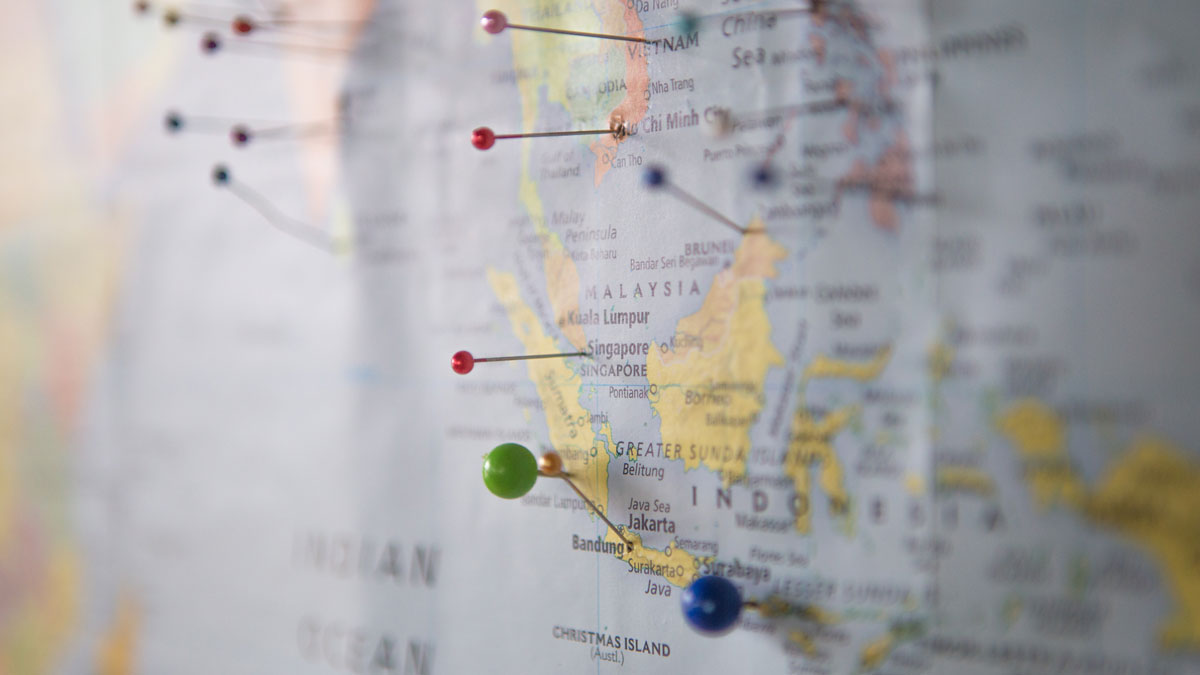How to Travel the World Without Destroying It

Do you feel guilty about your summer holiday’s impact on the planet? As the effect of human emissions on climate change takes centre stage in politics and the media, it’s something an increasing number of holidaymakers report.
But sacrificing travel and all the enrichment that comes with it is understandably not something people consider lightly. On the recent announcement of Sussex Royal’s new travel programme, Travelyst, Prince Harry declared that “Travel has the unparalleled power to open people’s minds to different cultures, new experiences, and to have a profound appreciation for what our world has to offer.”
His new enterprise emphasizes the critical importance of accelerated adoption of sustainable practices worldwide to balance travel growth with the needs of the environment and local populations.
But with Flygskam (A Swedish movement of flight shaming) condemning air travel altogether, instead promoting lower-carbon emission land or sea travel a la Greta Thunberg, how best to reap the benefits of travel without sacrificing convenience, while also being conscious of your global footprint?
Here, we outline some innovative solutions to help quash any undue travel guilt and help you get the best of, well, the world…
Travelyst
The first project to fall under the Sussex Royal foundation is the product of a two-year collaboration between Prince Harry and travel partners including Booking.com, SkyScanner, CTrip, TripAdvisor and Visa.
Rather than encourage people to travel less, it will facilitate tourists with what they need to make environmentally-friendly decisions such as tips for carbon emission offsetting and the support of local communities at tourist destinations.
One particularly concerning area Travelyst will seek to counter is the damage done by “over-tourism”, and the damage done to natural sites of beauty. In bringing some of the world’s leading travel companies together, collaboration could prove key to keeping our most beloved destinations happy and healthy.
Carbon Offsetting
Offsetting your emissions when you fly means calculating the toll of your travel and purchasing equivalent credits from projects that prevent or remove the emissions of equivalent greenhouse gas elsewhere.
There are a number of tools online, such as Atmosfair, that can roughly calculate the environmental impact of a flight, though numbers can vary wildly from tool to tool.
Increasingly, many of the most fuel-profligate airlines in the world – including British Airways, Emirates and Delta – are offering to offset customers’ flights themselves, while 15 airlines now voluntarily offset emissions in some capacity.
As a starting point, when you have to fly you could always simply donate to an organisation that generates renewable energy, contributing to a level that covers or goes someway to contribute towards offsetting your emissions.
Tripadvisor Ticket Bans
Towards the end of 2016 Tripadvisor committed to banning ticket sales to any attraction involving contact with wild animals, including elephant rides, tiger petting and swimming with dolphins.
The travel reviews giant also created an animal welfare education portal on their website, which hosts guidance from a number of expert organizations, clickable from any animal attraction page listed on the website.
Booking Booster
The Booking Booster programme is an initiative from booking.com which grants financial aid to 10 sustainable travel start-ups a year.
The programme has a fund of €2 million and has, for 2019, awarded organisations including a social enterprise which trains at-risk women in Nepal to become trekking guides, plus a hotel-school development in Indonesia combining hospitality education to underprivileged young locals with an eco-resort fort travellers.
KLM Fly Responsibly
There’s no denying Young Thunberg’s two-week zero-carbon sail from the UK to New York was a wonderful feat to behold, but it’s not for everyone. That being said, within Europe and the US we are all guilty of overusing air travel.
It’s something that even flight providers are catching on to. KLM’s Fly Responsibly campaign includes a website which asks prospective passengers if they wouldn’t be better off conducting virtual meetings rather than fly for a business trip, or taking the train instead should there be adequate rail routes.
_
See more travel-related content from Form here.


















